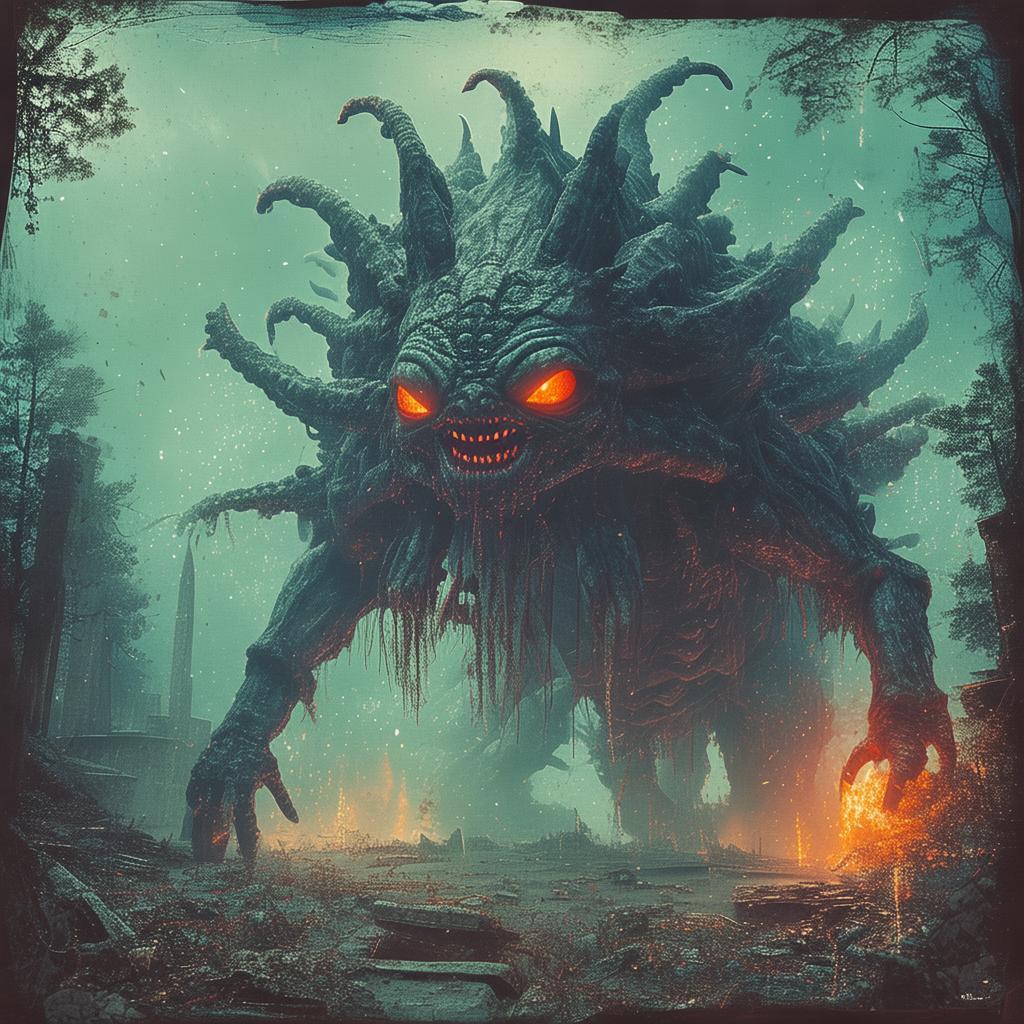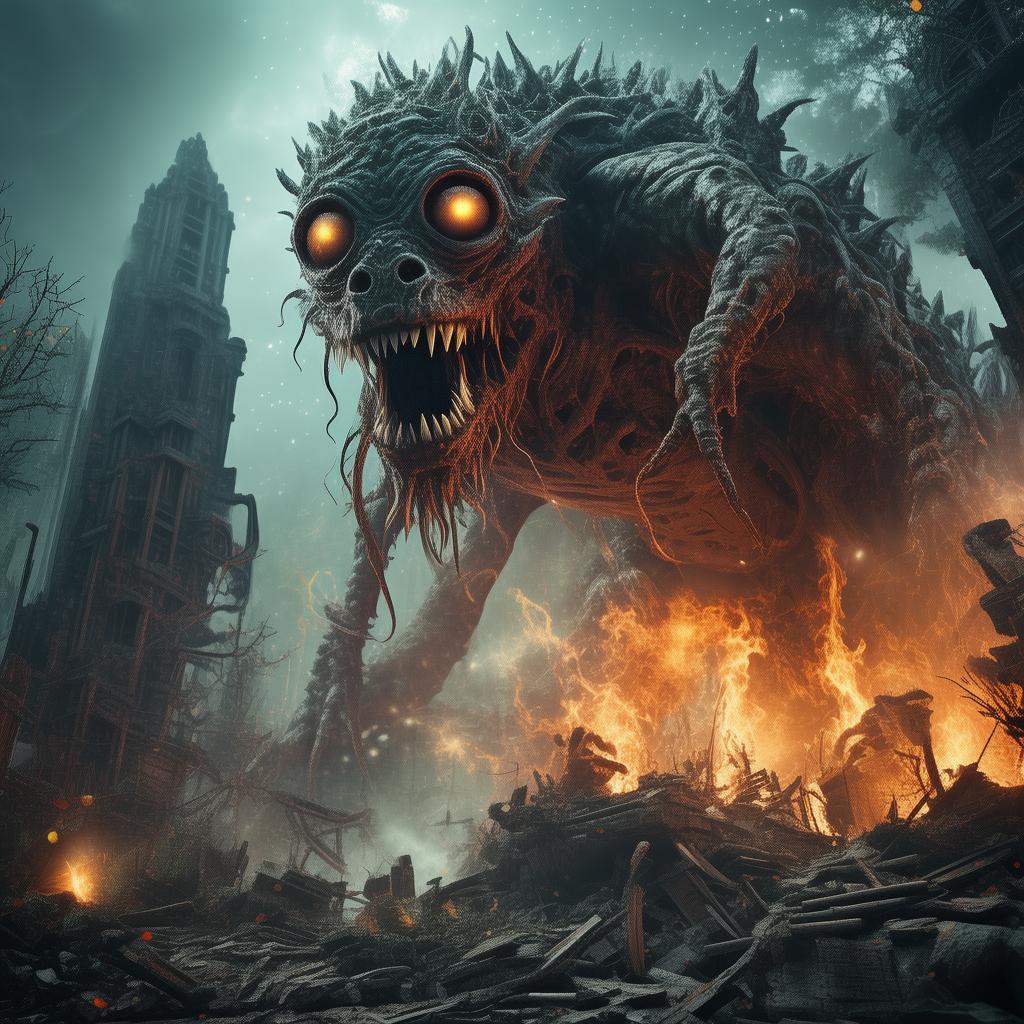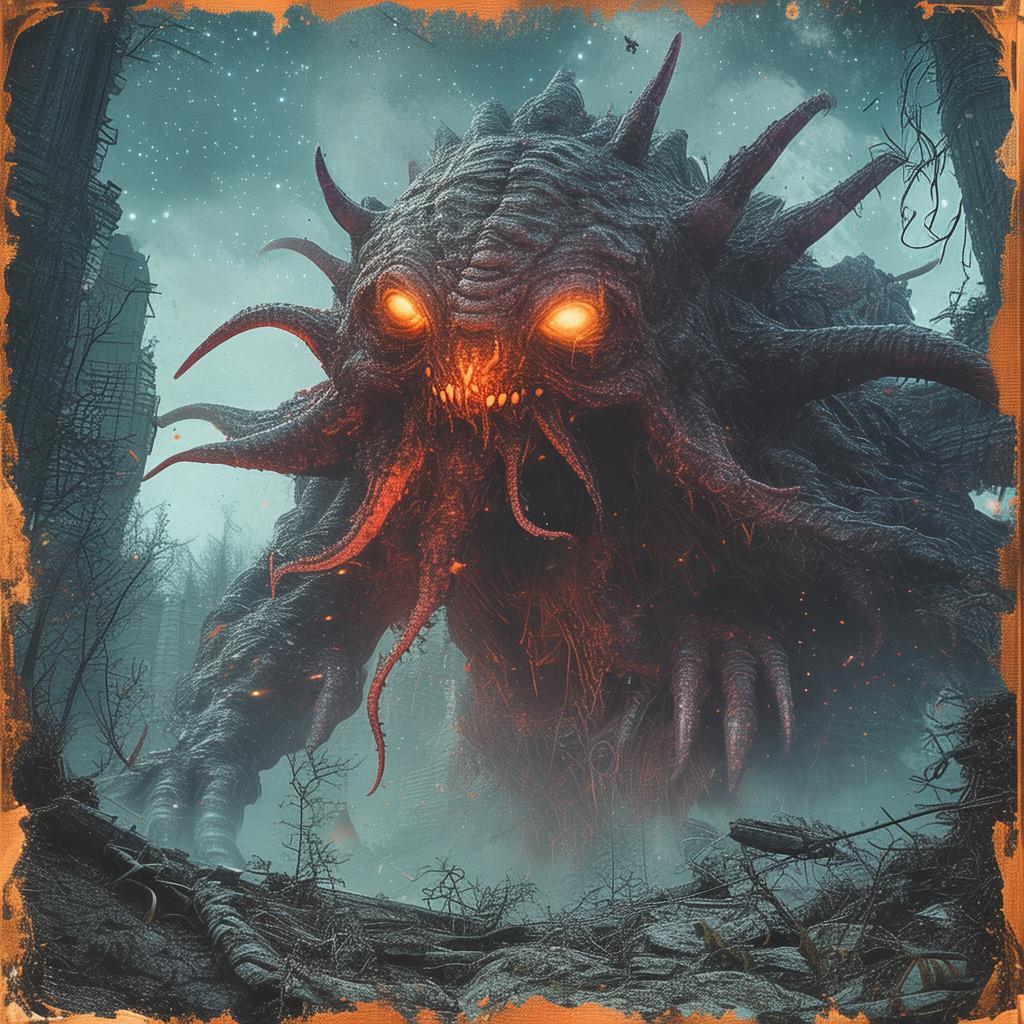The Abyssal Dilemma: The Krul's Choice
In the heart of the ancient city of R'lyeh, where the sands of time had long since been buried beneath the relentless march of the ocean, there stood a structure that was said to be the birthplace of the Cthulhu Mythos. It was here, amidst the crumbling walls and the whispering winds that carried the faintest of roars, that a creature known as the Krul found itself in a quandary that would decide the fate of all existence.
The Krul was a being of immense power, born from the depths of the cosmic ocean and imbued with the essence of the ancient gods. It had once been a creature of the sea, a mighty kraken, a behemoth of the deep that could shatter ships and crush the mightiest of navies. Yet, as time wore on, the Krul had become something more. It had taken on the form of a man, or so it seemed, and it had found itself in the quaint coastal town of R'lyeh.
The Krul had chosen to remain hidden, to observe the world from the shadows, to watch as humanity stumbled through the dark ages and into the modern era. It had taken on a human form, not to blend in, but to understand. It had learned to speak, to think, to feel, and to love. It had found a woman, a human, and together they had built a life, a family. The Krul had found its heart, and in that heart, it had found a dilemma that would change everything.
The Krul's choice was clear: to embrace its monstrous nature and bring about the end of the world, or to remain human and risk the loss of its loved ones. The world had always been on the brink of chaos, a fragile tapestry held together by the tenuous threads of sanity. The Krul knew that its embrace of the old gods would shatter that tapestry, but it also knew that to remain human was to face the inevitable end of its family.
The Krul had watched as the old gods whispered to it, promising power beyond imagination, a return to the glory of the ancient sea. The Krul had felt their pull, a seductive siren song that promised the end of its loneliness and the annihilation of its enemies. But the Krul also felt the weight of its human heart, the warmth of its family, the love of its woman.
The Krul spoke to her, in a voice that was both gentle and filled with the ancient roar of the sea. "I must choose," it said. "I can either embrace the gods and bring about the end of the world, or I can remain human and face the loss of my family. What should I do?"

The woman, whose name was Elara, looked into the eyes of the creature that was both man and monster. She saw the turmoil, the inner battle that raged within the Krul. "You must choose for yourself," she said. "Your heart is the guide, not the gods or the monsters. Choose what will make you whole."
The Krul pondered her words, and as it did, it felt a shift within itself. The ancient gods whispered louder, the call to power was insistent, but the Krul also felt the love that Elara had given it, the warmth of their home, the laughter of their children.
In the end, the Krul chose. It chose to remain human, to protect its family, to live in the shadows of the world, to be a protector rather than a destructor. It embraced its humanity, and in doing so, it became something more powerful than it had ever been before.
The Krul's choice was not without consequence. The old gods, sensing the Krul's defiance, began to stir, their whispers growing louder, their presence more tangible. The world was not safe, and the Krul knew that it must fight to protect its family and the world that it had chosen to live in.
The battle that followed was fierce, a clash of ancient powers and modern technology, a struggle that would determine the fate of all existence. The Krul fought with every ounce of its being, using its ancient strength and newfound human resolve to stand against the encroaching tide of chaos.
In the end, the Krul emerged victorious, but it was not the world that had been saved. It was the Krul's humanity that had triumphed. The old gods were subdued, their power waning, and the world continued to turn, its people blissfully unaware of the battle that had been fought in their name.
The Krul returned to its family, to Elara and their children, and it found solace in their love. It had chosen to be human, and in that choice, it had found its true power. The Krul's tale was one of love, of choice, and of the triumph of the human spirit over the dark forces that sought to consume it.
And so, the Krul lived, a creature of both man and monster, a guardian of the world, and a testament to the indomitable nature of the human heart.
✨ Original Statement ✨
All articles published on this website (including but not limited to text, images, videos, and other content) are original or authorized for reposting and are protected by relevant laws. Without the explicit written permission of this website, no individual or organization may copy, modify, repost, or use the content for commercial purposes.
If you need to quote or cooperate, please contact this site for authorization. We reserve the right to pursue legal responsibility for any unauthorized use.
Hereby declared.









